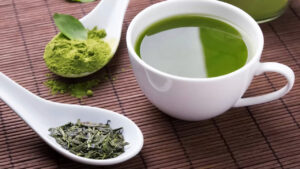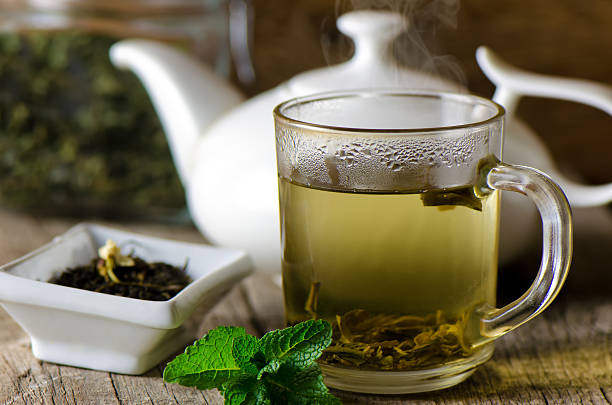Amazing Green Tea Benefits
Green tea benefits are quite enormous. Green tea is a type of tea made from the leaves of the Camellia sinensis plant, the same plant used to make black, oolong and white teas. What makes green tea different from other types of tea is how it is processed. Green tea leaves are not oxidized like black tea leaves, which gives green tea its unique green color and unique flavor.
Here are some key points about green tea:
Origin and cultivation:
Green tea is believed to have originated in China over 4,000 years ago and is one of the oldest types of tea. It is now produced in many countries including China, Japan, South Korea, India and various parts of Southeast Asia.
Sorting:
Like other types of tea, there are many different types of green tea, each with its own characteristics. Popular green tea varieties include Longjingcha, Sencha, Matcha, Gyokuro and Jasmine tea.
Process:
Camellia sinensis plant leaves undergo minimal oxidation after being picked. The leaves are quickly heated (usually by steaming or pan-frying) to stop oxidation and preserve the green color and natural content of the leaves. This minimal processing preserves the tea’s fresh taste and many health benefits.
Flavor profile:
Green tea generally has a light, refreshing flavor with grassy, vegetable, and sometimes slightly sweet or nutty notes. The taste varies depending on the type of tea and where it is grown.
Caffeine content:
Green tea contains caffeine, but the amount is generally lower than black tea or coffee. On average, an 8-ounce cup of green tea contains about 30-50 milligrams of caffeine. However, this depends on the type of green tea and how it is made.
Health Benefits:
As mentioned earlier, green tea is known for its many health benefits due to its high concentration of antioxidants, especially catechins and his EGCG (epigallocatechin gallate). These antioxidants are associated with potential benefits for heart health, weight management, brain function, and more.
Preparation:
When brewing green tea, it is important not to use hot water as this can introduce bitterness. The water temperature should be approximately 70-82°C (160-180°F). Let the tea leaves steep for 1-3 minutes, depending on the type of green tea and your preference. You can enjoy green tea as it is, or add honey or lemon to enhance the flavor.
Ceremonial:
In some cultures, such as Japan, green tea is an integral part of traditional rituals, such as the Japanese tea ceremony (chanoyu), in which powdered green tea, matcha, is prepared and consumed according to precise rituals.
Green tea is becoming more and more popular all over the world, not only as a popular drink, but also as an ingredient in various culinary, cosmetic and health products. Green tea’s rich history, unique flavor and potential health benefits have made it a prized beverage for people around the world.
Insights On Green Tea Benefits
Green tea has been a popular drink enjoyed for centuries in many parts of the world, especially in Asian countries like China and Japan. It is made from the leaves of the Camellia sinensis plant and is known for its unique flavor and many health benefits.
Here are some details on the potential benefits of green tea:
Rich in antioxidants: Green tea is packed with antioxidants, especially catechins, which help neutralize harmful free radicals in the body. These antioxidants can help reduce oxidative stress and protect cells from damage.

Boosts metabolism and aids in weight management: Some studies show that green tea can boost metabolism, which may aid weight control. The combination of caffeine and catechins in green tea can help increase energy expenditure and fat oxidation.
May improve brain function: Green tea contains caffeine, a well-known stimulant that can improve brain function, including improving mood, alertness, reaction time and memory.
Additionally, the L-theanine in green tea may have a calming effect and may help improve focus.
Promotes Heart Health: Regular green tea consumption is associated with a reduced risk of cardiovascular disease. The antioxidants in green tea can help lower bad cholesterol (LDL cholesterol) levels and improve overall heart health.
Supports oral health: Green tea has natural antibacterial properties that can help inhibit the growth of harmful bacteria in the mouth, improve oral health, and reduce the risk of tooth decay and bad breath.
May reduce the risk of certain cancers: Some studies suggest that the antioxidants in green tea, especially EGCG (epigallocatechin gallate), may have anti-cancer properties and could potentially help reduce the risk of certain types of cancer, such as breast, prostate and colorectal cancers.
Helps manage diabetes: Green tea may help regulate blood sugar and improve insulin sensitivity, which may benefit people with type 2 diabetes.
Supports liver health: The antioxidants in green tea may protect the liver from damage and improve liver function, potentially reducing the risk of liver disease.
May reduce the risk of neurodegenerative diseases: Some studies suggest that bioactive compounds in green tea may have neuroprotective effects, possibly reducing the risk of neurodegenerative diseases such as Alzheimer’s disease and Parkinson’s disease. It should be noted that although green tea offers many potential benefits, it is not a panacea.
The positive effects can vary from person to person, and incorporating green tea into a healthy and balanced lifestyle is the best approach.
However, caution should be exercised when drinking green tea, especially for people who are sensitive to caffeine or who are taking certain medications.
As with any dietary supplement or significant dietary change, you should consult your healthcare practitioner before incorporating green tea into your routine on a regular basis, especially if you have any pre-existing health conditions.
What You Can Get from It
1. Green tea is a natural stimulant
Green tea is a natural source of caffeine, so it’s a great way to cheer yourself up when you’re tired. The good news is that green tea has less caffeine than coffee. That means you can drink this drink throughout the afternoon without significantly disturbing your sleep or suffering from the nervous side effects of overdosing on caffeine (Mayo Clinic, 2014).
2. Green tea may help fight cancer
Oxidative damage occurs naturally within cells during normal cellular metabolism. A class of molecules called antioxidants can prevent or reverse this damage.
One of the most powerful antioxidants is called epigallocatechin gallate and is found in high amounts in green tea. Epigallocatechin gallate has been shown to suppress the growth of breast and prostate tumors (Liao et al., 1995).
3. Preserve nutrients with minimal processing
Unlike soda, another common source of caffeine, tea is relatively unprocessed. After picking the leaves, the leaves are softened and then rolled to extract the juice (tea class, no dates).
After heating the leaves, they are dried and ready to use. This minimal amount of processing means that green tea retains many of the phytonutrients found in the actual tea plant.
4. Green tea is associated with a lower risk of heart disease
Green tea is also said to be good for the heart. A 7-year follow-up study of 40,530 Japanese people found that consuming 3-4 cups of green tea per day reduced the risk of death from cardiovascular disease by 31% (Kuriyama, 2006).
5. Boosts Metabolism and Helps Lose Weight
The phytonutrients found in green tea can also help you lose and maintain weight. His 2009 meta-analysis of studies in this area found that consumption of catechin-rich green tea significantly reduced body weight (Hursel et al., 2009).
Additionally, those who drank green tea were more likely to maintain a healthy weight after significant weight loss.
6. Green tea balances the ratio of good and bad cholesterol
Not all cholesterol is bad for you. While low-density lipoprotein cholesterol (LDL) is associated with cardiovascular risk, high-density lipoprotein cholesterol (HDL) may actually protect against heart disease. The exact mechanism of this effect is unknown, but phytonutrients in green tea appear to help balance LDL and HDL cholesterol levels and keep them within healthy ranges (Maron et al., 2003).
7. Green tea helps you relax
Green tea contains the amino acid L-theanine, which is almost exclusively found in tea plants (Raj Juneja et al., 1999). L-theanine acts as a neurotransmitter in the brain, sending signals to neurons. Several studies have shown that L-theanine increases alpha wave production in the human brain, which appears to signal a state of relaxation (Raj Juneja et al., 1999).
8. It Can Protect Your Brain from Alzheimer’s Disease
Alzheimer’s disease is characterized by profound changes in memory and thinking. There is currently no cure for this neurodegenerative disease.
However, the antioxidants in green tea appear to reduce the likelihood of developing Alzheimer’s disease (Weinreb et al., 2004).
9. It may also help prevent Parkinson’s disease
Parkinson’s disease is a neurodegenerative disease that affects movement and fine motor skills. Like Alzheimer’s disease, Parkinson’s disease is progressive and incurable. Polyphenols in green tea may protect against neurotoxic cell damage while promoting healthy cell survival (Pan, Jankovic & Weidong, 2003).
10. Drinking green tea keeps your mouth healthy
Our mouth is a hotbed of bacteria. Green tea has natural antibiotic and antifungal properties. In fact, there is increasing evidence that drinking green tea can prevent tooth decay and bad breath (Narotzkia, 2012).
11. Green tea compounds may fight MRSA
Methicillin-resistant Staphylococcus aureus (MRSA) is a strain of antibiotic-resistant bacteria that commonly infects healthcare settings. Unlike common staphylococcal infections, MRSA is not easily treated with antibiotics.
Therefore, new treatment options are needed. Some preliminary evidence suggests that green tea may help combat MRSA (Zhao et al., 2001).
12. Drinking green tea stabilizes blood sugar levels
Flavonoids in green tea, including epigallocatechin gallate, have been shown to reduce hepatic glucose production. This means that the body regulates blood sugar more effectively and keeps blood sugar levels in a healthy range (Waltner-Law, 2002).
13. Green tea may lower the risk of type 2 diabetes
Type 2 diabetes is prevalent in the United States, with nearly 10% of the population afflicted with the disease (American Diabetes Association, 2016). Drinking green tea may reduce the risk.
Compared to participants who drank 1 cup of tea per week, participants who drank 6 or more cups of tea per day had a striking 33% lower risk of developing type 2 diabetes (Iso et al., 2006). This effect persisted even when researchers adjusted for factors such as age, gender and BMI.
14. Fluoride in green tea promotes dental health
Green tea contains fluoride, a mineral added to water to promote dental health (Fung et al., 1999). A small amount of fluoride can help prevent bacteria from attacking your teeth.
15. Antioxidants in Green Tea Strengthen the Immune System
Drinking green tea this winter may prevent rhinitis. In a randomized controlled trial, 32% of participants who took green tea extract developed cold or flu symptoms compared to a placebo control group (Rowe et al., 2006). The exact mechanism behind this effect is unknown, but it may be related to the vitamin C content in green tea.
16. Green tea ensures youthful appearance
Green tea is not only good for your physical health, but it also makes you look beautiful. Beauty professionals often use green tea products for their anti-inflammatory benefits.
For example, a 10% green tea cream combined with a green tea supplement formula improves skin elasticity, making the skin look more youthful as it ages (Chiu et al., 2005).
17. Green tea helps reduce sugar intake
Green tea contains no sugar, making it a healthy option for those afraid of added sugar. Compared to ramune and fruit juices, both of which are high in sugar, green tea is a healthier option. Those used to sweeter drinks may take some time to get used to the sour taste of green tea.
A great way to reap the benefits of green tea is to mix 1-2 tablespoons of matcha green tea powder into your smoothie until you get used to drinking green tea on its own.
18. Green tea can improve productivity
As a mild stimulant, green tea can help you focus. When you feel like you’re in a mid-afternoon slump, brew a cup of green tea to refuel and boost your productivity.
19. Green tea is associated with longevity
Green tea’s accumulated health benefits mean it can help you live longer.
In fact, a large study that followed participants for 11 years found that drinking 3-4 cups of tea a day reduced the risk of death by 5% in men and 18% in women (Kuriyama, 2006).
Foods to avoid with Kidney Failure
How To Take Care of Your Kidney
Causes of Hypertension in Young Adults
Oligospermia Natural Treatment

A graduate of Computer Science and Information Management Technology. Diploma – Caregiving, Certificates – Dementia and Diabetes Awareness and Management. A researcher, blogger, songwriter, singer and acoustic guitarist. Born in an environment where natural talents such as healing are imparted at our natural birth. This natural talents of healing is the result of our genetic inheritance and the training from family environment.












